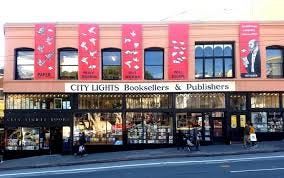
Recently, several younger friends have asked me about how they could capture the stories their grandparents can tell, while they are still here. They’ve realized that behind every elderly face lies a story, probably several.
Journalistic techniques may be able to help you extract them. You might even consider hiring a journalism student, because people will tell strangers things they would never tell their families.
But if you go DIY, the process isn't all that complicated.
First of all, a general observation. The best way to get someone to talk is not to ask them to talk. Instead ask them to take a walk.
Once they walk, they'll talk.
Or offer a cup of tea. You can't drink tea without also talking.
But if you must set up a formal interview, for heaven's sake, don't ask for her whole life story at one sitting. Start small, just ask her questions that will prompt her memory. Such as...
"What flowers grew near your house?"
"What was your favorite book?"
"What did your house smell like?"
"What was your pet's name?"
"What did you want for your birthday when you were small?"
"What was really scary back then?"
"Who took that photo?"
After those tidbits, maybe move on to the bigger things.
"Is there any dream you've had over and over?"
"How did you and Grandpa meet?"
"Where did you eat your first meal?"
"How did you get that scar?"
"Where did you go on your first date?"
You can go on and on if she is willing to cooperate. Over time, keep the questions open-ended and she'll volunteer to fill in the blanks. That's it. It is just that simple and just that difficult at the same time.
But for one who has lost their partner, there is also a critical question you might consider that goes like this.
"After he died, and you went outside for the first time, what was different?"
***
In my own case, one of my grandmothers did leave a written account of her early life. They clearly were difficult times; she had to run away from home (a farm in Canada) to avoid abuse. But the tone of her story was not that of a victim, rather it was matter-of-fact, as if she were recalling a minor stomach ache.
She dictated her story to one of her daughters, my aunt, who typed it up and gave it to the rest of us. My other grandmother and both grandfathers left no written records that I am aware of.
There are a few old black-and-white photos, some public records, and some oral accounts that my sisters and I know about the three grandparents we met.
That's it. You don't know what you don't know.
(I first published an earlier version of this one three years ago in February 2021.)
HEADLINES:
The science of IVF: What to know about Alabama's 'extrauterine children' ruling (NPR)
Alabama Chief Justice Tom Parker, who wrote the opinion in last week's Alabama Supreme Court ruling that frozen embryos have the same rights as living children, recently appeared on a show hosted by a self-anointed “prophet” and QAnon conspiracy theorist. Read more about Christian nationalist influencer Johnny Enlow. [HuffPost]
South Carolina GOP presidential primary: Nikki Haley’s battle with Donald Trump comes home (Yahoo)
Defense says cellphone data raises questions about start of Willis-Wade relationship (AJC)
Trump faces warning signs that his fundraising prowess may have limits in 2024 (AP)
Donald Trump urged Christians to support him in the 2024 presidential election, a contest he depicted in religious terms and likened to the great battles of World War Two. Speaking at a forum for Christian broadcasters in Nashville, he compared the stakes for the election to D-Day and the Battle of the Bulge. (Reuters)
Informant who allegedly lied about the Bidens is rearrested (WP)
CBS faces uproar after seizing investigative journalist’s files (The Hill)
WAMU shuts down local news site DCist, will lay off reporters (WP)
Biden announces more than 500 sanctions on Russia after Navalny's death (NBC)
Netanyahu unveils plan for Gaza’s future post-Hamas (CNN)
Former digital-media darling Vice to end website, lay off hundreds (WP)
Isolated for six months, scientists in Antarctica began to develop their own accent (BBC)
New report: 60% of OpenAI model's responses contain plagiarism (Axios)
AI Is in the Midst of a Fever Dream and It’s Only Getting Worse (Gizmodo)
AI’s New Job? All-Purpose Hollywood Crewmember (Hollywood Reporter)
The AIs are officially out of control (Verge)
Removed Notre Dame Scaffolding Reveals Construction Crew Accidentally Built Mosque (The Onion)


